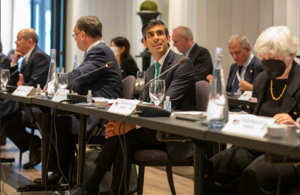Inspectorates: Urgent action needed at Oakhill Secure Training Centre
Such is their concern about the safety and welfare of children at the G4S-run secure centre, the inspectorates have issued an Urgent Notification to the Secretary of State for Justice. Dominic Raab has 28 days to respond with an action plan for improvement at the centre.
The notification follows an October inspection at the Milton Keynes centre, which highlighted unjustifiable – and in some cases unlawful – levels of force being used on children as young as 15. Staff lack the skill to carry out restraint safely, while oversight of the use of force is inadequate, inspectors found.
Systems for keeping children safe are in ‘disarray’, leaving children at risk of serious harm. Leaders have failed to pass on concerns and allegations to outside agencies, while some issues have been investigated internally – contrary to statutory guidance – potentially compromising any future external investigations.
The inspectorates also found:
-
Frontline staff are poorly managed and supported. Many haven’t received any purposeful training and development beyond their mandatory programmes.
-
Staff are reluctant to challenge low level poor behaviour, leading to more serious incidents and violence. This is made worse by the lack of an effective behaviour management strategy to support staff in how to deal with challenging behaviour.
-
Most children said they lacked confidence in the complaints system, discouraging them from raising concerns. This has serious implications for safeguarding as it could allow harmful behaviour to go undetected.
-
Children are being cared for by staff who aren’t equipped with all the information they need to keep them safe or meet their needs. Some staff told inspectors they had been given the choice of whether to read relevant information and had chosen not to.
-
Children have access to inappropriate adult content via televisions in their rooms. Senior managers have been aware of this since March, but have taken no action.
This week, a monitoring inspection report found that children at Oakhill were spending up to 23 hours a day in their rooms due to inadequate staffing, a move described as ‘wholly inappropriate’ by inspectors. While this practice has ended, children’s experiences during this period were ‘bleak’, and ‘barely met minimum standards of human decency’, the inspectorates say.
Staffing of the centre remains fragile. Records show Oakhill is losing almost 30% of its staff each year, leading to unstable, transient relationships with children – a primary factor in children’s poor experiences.
A new interim director took up post in September but will only be in place for up to 3 months. While the director acknowledges inspectors’ concerns and has begun to address some of the issues raised, permanent leadership has yet to be arranged.
It is the third time in 2 weeks that inspectors have highlighted concerns about treatment of children in secure centres. Today’s findings also follow a damning report into conditions at Rainsbrook STC – run by MTC Novo – which was recently downgraded to inadequate.
Since 2017, Oakhill has not been judged higher than ‘requires improvement to be good’ for the ‘overall experiences and progress of children’.
Amanda Spielman, Ofsted’s Chief Inspector, said:
This is a centre in chaos, with children bearing the brunt of staff shortages and poor organisation. These are vulnerable children in need of care, yet they are living with excessive use of force and violent incidents, in conditions that no one would want for their own children. Stable leadership and a full, effective workforce are vital if children are to get the rehabilitation they so desperately need.
Charlie Taylor, Chief Inspector of Prisons, said:
Oakhill STC is failing to provide adequate care for such a vulnerable group of children and it was hugely disappointing to find a staff team that was unable to manage behaviour effectively, failed to safeguard children, and overused physical restraint. Urgent action must be taken to make sure that there is a strong leadership team in place and sufficient, high-quality staff to transform the outcomes in this long-troubled centre.
Dr Rosie Benneyworth, Chief Inspector of Primary Medical Services and Integrated Care at CQC, said:
Providing safe and good quality care to children in settings such as this requires adequate numbers of staff who are fully supported by managers. Unfortunately, we saw that this was not the case at Oakhill which is impacting on the care children at the centre are receiving. Although children had their health needs assessed and were able to attend medical appointments, it is of great concern that some children were confined to their rooms for such long periods of time, this is likely to have a detrimental impact on both their physical and mental wellbeing.

